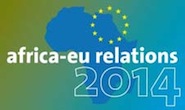++ SERIES: BUILDING THE POST-2015 DEVELOPMENT FRAMEWORK++ Policy debates in international development frequently forget to acknowledge that the actions of individual citizens are often as least as important as the large development interventions. In Haiti, benefits from remittances sent home by migrants equal nearly 20% of GDP – more than twice the earnings from the country’s exports. Similarly, the reduction of income poverty in Nepal from 42% to 26% in 15 years was not mainly due to foreign direct investments, nor due to Official Development Assistance, but rather due to outward labour migration and remittances. ...
African leaders from more than 50 countries met on 15 and 16 July for the African Union summit at the impressive Chinese-funded AU headquarters in Addis Ababa. Boosting intra-African trade was the key theme of the summit, but the election of the AU Commission (AUC) Chairperson and its new top officials dominated the largest part of the meeting. Benin’s President Yayi Boni, currently holding the rotating presidency of the African Union, had the firm intention to break the stalemate that has been dragging on since January when AU member states could not reach agreement over ...
++ GUEST CONTRIBUTION ++ As EU High Representative Catherine Ashton visits Cairo this week, both Europe and Egypt will think about how they can mould a new relationship. With a newly elected Egyptian President the EU must in turn create a new framework for cooperation with the country. The last thing that Egyptians want is to be told what to do by the EU. As the Arab world’s most populous state stumbles on its path towards democracy and Europe itself struggles economically, can the EU really establish a new and mutually beneficial relationship with a ...
For those concerned with development and Africa, the three big questions during the EU budget negotiations are: “how much money is going to be available?”, “what is it going to be for?” and “which countries are going to get it?”. One year has passed since the EU institutions started the cycle of negotiations for its next multiannual financial framework (MFF) covering the period 2014-2020. A key round of talks took place last week. Negotiations between Member States’ ministers are mostly centred on the “big ticket items” of spending inside the EU – Cohesion Policy and ...

















